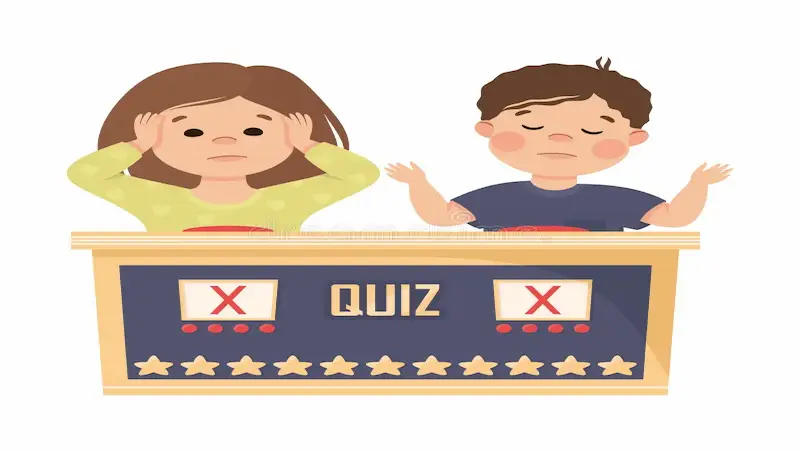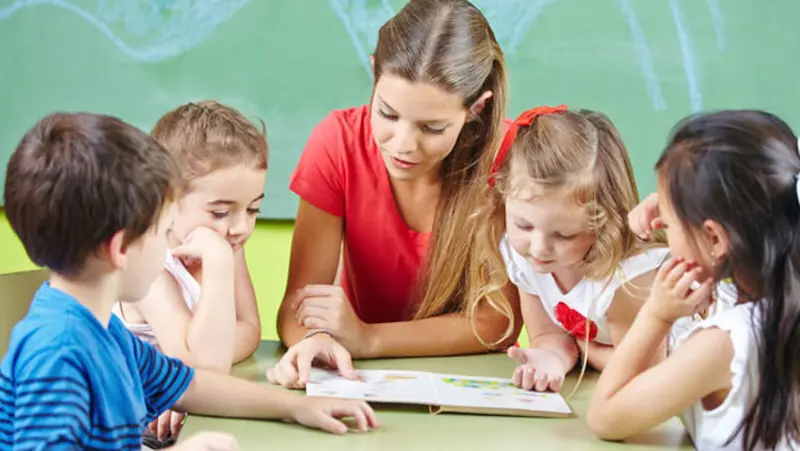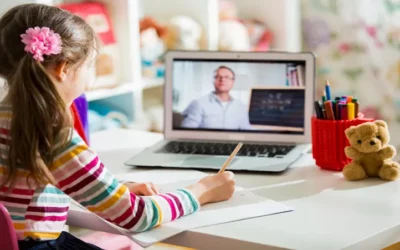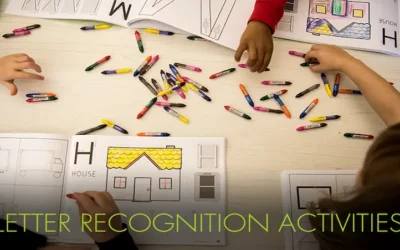General knowledge encompasses a wide range of information about the world we live in, including history, science, geography, arts, and much more. It provides a solid foundation upon which children can build their understanding of the world, fostering curiosity, critical thinking, and a lifelong love for learning.
The development of general knowledge in children plays a pivotal role in their overall growth and well-being. It serves as a springboard for intellectual development, enabling children to make connections between different subjects, deepen their understanding of complex concepts, and develop a broader perspective.
When children possess a strong foundation of general knowledge, they become more capable of engaging in meaningful conversations, asking insightful questions, and expressing their ideas effectively. It enhances their communication skills, boosts their self-confidence, and empowers them to actively participate in various social and academic settings.
Moreover, general knowledge expands children’s horizons and broadens their cultural awareness. It exposes them to diverse ideas, beliefs, and perspectives, fostering empathy, tolerance, and respect for others. By understanding the world around them, children develop a sense of global citizenship, recognizing their place as active contributors to society.
As parents, you play a vital role in nurturing your child’s thirst for knowledge. Encouraging curiosity, reading together, exploring the world through field trips and discussions, and providing access to age-appropriate educational resources are just some of the ways you can support your child’s journey towards gaining a strong general knowledge base.
In our partnership, we strive to create an environment that fosters the acquisition of general knowledge, empowering your child to become a lifelong learner and a well-rounded individual. Together, let us embark on this exciting voyage, where each day brings new discoveries, memorable experiences, and endless possibilities for growth.
Once again, welcome parents, and thank you for entrusting us with the privilege of shaping your child’s educational journey. Let’s embark on this adventure together, nurturing young minds and preparing them for a future filled with knowledge and success.
Table of contents
Benefits of GK Questions for Kids
In a rapidly evolving world, it is crucial to equip children with a wide range of knowledge and skills that will enable them to navigate through life successfully. General Knowledge (GK) plays a pivotal role in shaping a child’s intellectual development, fostering curiosity, and enhancing their overall cognitive abilities.
Engaging children in GK questions offers a plethora of advantages that extend beyond the acquisition of facts and figures. In this blog, we will explore the numerous benefits of incorporating GK questions into a child’s learning journey.

Expanding Horizons
Engaging children in GK questions helps broaden their horizons by introducing them to a diverse array of subjects. It exposes them to various topics, such as science, history, geography, literature, and current affairs, which may not be covered extensively in their formal education. This exposure encourages curiosity, stimulates their interest in different subjects, and lays a strong foundation for lifelong learning.
Boosting Critical Thinking Skills
GK questions encourage children to think critically and analytically. They prompt kids to apply their knowledge, draw connections between different concepts, and solve problems. This process enhances their cognitive skills, such as logical reasoning, problem-solving abilities, and the ability to make informed decisions. Engaging children in GK questions fosters a habit of seeking information and developing a well-rounded thought process.
Developing Communication Skills
GK questions serve as a valuable tool for improving children’s communication skills. Answering questions about various topics encourages them to articulate their thoughts clearly and express themselves effectively. Engaging in discussions and debates related to GK fosters the development of persuasive speaking skills, active listening, and the ability to communicate with confidence and clarity.
Promoting Cultural Awareness
GK questions provide children with insights into different cultures, traditions, and historical events from around the world. By learning about different societies and their customs, children develop empathy and respect for diversity. This exposure to different cultures broadens their understanding of the global community and nurtures a sense of global citizenship.
Building Self-Confidence
Engaging children in GK questions allows them to showcase their knowledge and abilities. When they answer questions correctly or participate actively in discussions, it boosts their self-confidence and self-esteem. Success in answering GK questions reinforces their sense of achievement, encourages further exploration, and motivates them to learn and discover more.
Enhancing Memory and Retention
GK questions require children to recall and retain information across various subjects. Regular engagement with GK questions helps improve memory and strengthens the neural connections in their brains. This not only aids in academic pursuits but also enhances their overall cognitive abilities.
Fostering a Lifelong Love for Learning
By encouraging children to explore different areas of knowledge, GK questions cultivate a lifelong love for learning. It instills a sense of curiosity and wonder in children, encouraging them to continue seeking knowledge even beyond their formal education. This curiosity-driven attitude prepares them to embrace new challenges, adapt to a changing world, and continue to grow intellectually throughout their lives.
Age-Appropriate GK Questions
In the world of education and entertainment, catering to the unique needs and interests of different age groups is crucial. Creating categorized sections that specifically target various developmental stages can enhance learning experiences, foster engagement, and promote healthy growth.
From the curious minds of preschoolers to the emerging independence of preteens, let’s explore the significance of providing age-appropriate sections in educational settings, libraries, and media platforms.
Depending upon age we can include financial education for kids and programming for kids kind questions, because those two are important factors in today’s world.

Section 1: Preschoolers (Ages 3-5)
Preschoolers are filled with wonder, imagination, and a natural desire to explore the world around them. The key to engaging this age group is to provide materials that encourage sensory experiences, imaginative play, and early literacy skills.
Categorized sections for preschoolers should include:
Picture Books: Bright, colorful, and simple picture epic books for kids with large text help build vocabulary, enhance language skills, and develop a love for reading.
Interactive Learning: Hands-on materials such as puzzles, building blocks, and shape sorters stimulate cognitive development and fine motor skills.
Storytime Corner: Creating a cozy space for storytelling sessions with puppets, felt boards, and props encourages active participation and sparks their imagination.
Section 2: Early Elementary (Ages 6-8)
Children in the early elementary years are eager learners, building on their foundational skills while discovering new interests. Categorized sections for this age group should focus on fostering their curiosity, expanding their knowledge, and encouraging independent reading.
Consider including:
Fiction and Non-fiction Books: Diverse stories that reflect different cultures, experiences, and genres appeal to their expanding worldview and imagination.
STEM Resources: Introduce basic science, technology, engineering, and math concepts through engaging experiments, kits, and interactive learning materials.
Art and Craft Corner: Materials for creative expression like coloring pages for kids books, craft kits, and easy-to-follow art guides help develop fine motor skills and unleash their artistic abilities.
Section 3: Late Elementary (Ages 9-11)
Late elementary children are becoming more independent, developing critical thinking skills, and seeking more complex narratives. Categorized sections for this age group should encourage their growing maturity, foster a love for reading, and provide opportunities for self-exploration.
Include:
Chapter Books: Engaging stories with relatable characters and more advanced vocabulary, allowing them to delve deeper into reading and expand their literary tastes.
Historical and Biographical Accounts: Books for kids that explore history, biographies, and real-life stories can ignite their interest in the world and inspire empathy and understanding.
Creative Writing and Journaling: Encourage self-expression through writing prompts, journals, and guided activities to develop their writing skills and nurture their unique voice.
Section 4: Preteens (Ages 12-14)
Preteens are experiencing significant changes, both physically and emotionally. Categorized sections for preteens should reflect their evolving interests, provide avenues for self-discovery, and address their emerging maturity.
Consider including:
Young Adult Fiction: Books that explore themes of identity, friendship, and self-discovery resonate with preteens as they navigate their own journeys.
Science Fiction and Fantasy: Engaging the imagination with captivating worlds and characters helps them explore complex ideas and foster a love for storytelling.
Non-fiction Explorations: Books on personal development, social issues, and science can help preteens develop a broader understanding of the world and their place in it.
Learning Activities and Games
In the world of education, keeping students engaged and motivated is key to effective learning. One way to achieve this is through interactive learning activities for kids and games that make the learning process enjoyable and stimulating. General Knowledge (GK) questions are a fantastic tool for incorporating interactive elements into educational settings.
In this blog, we will explore how you can share interactive learning activities and games for kids using GK questions, making the learning experience both Fun and Educational Online Games for Kids.

Quiz Games
Quiz games are an excellent way to encourage student participation and enhance their knowledge base. By using GK questions, you can create engaging quiz games that promote healthy competition among students.
Here are a few ideas to get you started:
Kahoot!: Utilize the popular online games for kids platform Kahoot! to create interactive quizzes. Students can compete individually or in teams, answering GK questions within a set time limit. The platform provides real-time results, fostering an exciting atmosphere.
Jeopardy-style Game: Adapt the classic Jeopardy game format using GK questions. Divide students into teams and assign point values to questions based on difficulty. This game encourages critical thinking and strategic decision-making.
Scavenger Hunts
Scavenger hunts inject an element of adventure and exploration into the learning process. By integrating GK questions into the hunt, students learn while actively searching for answers.
Here’s how to organize a GK-themed scavenger hunt:
Create Clue Cards: Design clue cards with GK questions and place them in various locations around the classroom or school. Each clue leads to the next location.
Team Collaboration: Divide students into teams and provide them with the first clue. As they solve each question, they will locate the next clue card. The first team to complete the scavenger hunt wins.
Interactive Quizzes
Interactive quizzes add a dynamic element to learning by combining technology and GK questions. They can be easily created using various online platforms or interactive whiteboards.
Here are a few ideas to incorporate interactive quizzes:
Poll Everywhere: Use the Poll Everywhere platform to create real-time interactive quizzes. Students can answer GK questions using their smartphones or other devices. The results are instantly displayed, promoting engagement and discussion.
Interactive Whiteboard Quizzes: Utilize interactive whiteboards to display GK questions, allowing students to answer using touch-screen capabilities. This method encourages student participation and can be utilized in a classroom setting.
Role-Playing Games
Role-playing games provide an immersive experience where students actively engage with GK questions while assuming different characters or roles. This approach encourages critical thinking, problem-solving, and collaboration.
Consider the following:
Historical Figures: Assign students different historical figures and encourage them to research and embody their assigned character. They can then engage in a discussion or debate, answering GK questions from their character’s perspective.
Current Events Simulation: Create a simulation of current events by assigning students different roles, such as politicians, journalists, or activists. They can then participate in a mock press conference, answering GK questions related to the topic.
Know more about website maker for kids
Tips for Using GK Questions at Home or in the Classroom
General Knowledge (GK) is an essential aspect of a well-rounded education. It not only broadens our understanding of the world but also helps us develop critical thinking, problem-solving skills, and cultural awareness. GK questions are a powerful tool that parents and teachers can utilize to enhance a child’s educational journey.
In this blog, we will explore practical tips for maximizing the educational value of GK questions, ensuring that they become engaging and impactful learning experiences.

Encourage Curiosity
Curiosity is the driving force behind learning. Encourage children to ask questions about the world around them and nurture their natural curiosity. Introduce GK questions that spark their interest and make them eager to discover more. Foster an environment where curiosity is valued and rewarded, creating a positive attitude towards learning.
Incorporate Real-Life Examples
To make GK questions more relatable, incorporate real-life examples. Connect the questions to current events, historical events, or everyday situations. This approach helps children understand the practical application of their knowledge and strengthens their ability to relate new information to their own experiences.
Make it Interactive
Engagement is key to effective learning. Make GK question sessions interactive by incorporating board games for kids, quizzes, and group activities. Use multimedia resources such as videos, images, and online platforms to create an immersive learning experience. Allow children to participate actively, fostering a sense of competition, collaboration, and fun riddles for kids.
Connect GK Questions to Other Subjects
GK questions shouldn’t exist in isolation. Integrate them with other subjects to create cross-curricular connections. For example, when studying history, ask questions about famous historical figures or events. When exploring science, include questions about discoveries or inventors. By interweaving GK questions into various subjects, you create a holistic understanding of knowledge.
Encourage Research Skills
GK questions provide an excellent opportunity to develop research skills. When children encounter a question they don’t know the answer to, encourage them to explore further. Guide them to reliable sources, such as books or reputable websites, and help them navigate through the information. This process nurtures critical thinking, information literacy, and independent learning.
Foster Healthy Competition
Competition can be a motivating factor for many children. Organize GK competitions within the classroom or among peers, allowing children to showcase their knowledge. Recognize and celebrate achievements, instilling a sense of accomplishment and encouraging further engagement with GK topics. However, ensure that the competitive atmosphere remains positive and supportive, focusing on personal growth rather than solely on winning.
Encourage Expression and Discussion
GK questions often lead to lively discussions and debates. Encourage children to express their opinions and perspectives, fostering critical thinking and communication skills. Create a safe and inclusive environment where everyone’s thoughts are respected, allowing for constructive debates and collaborative learning.
Keep it Age-Appropriate
Tailor GK questions to the appropriate age and developmental level of the children. Use language and concepts that are accessible and understandable to them. Avoid overwhelming them with information beyond their capacity to comprehend. Gradually increase the complexity of the questions as their knowledge and understanding expand.
Conclusion
In conclusion, exploring the collection of General Knowledge (GK) questions on our blog can provide numerous benefits for parents and their children. By engaging in these quizzes, parents can create an environment of learning that goes beyond traditional classroom settings. The benefits are multifold.
Click here to know more about robotics kit for kids and robotics class for kids .
Firstly, GK questions help expand a child’s knowledge base by introducing them to various topics, ranging from science and history to current affairs and literature. This broad range of information not only enhances their academic skills but also nurtures a well-rounded understanding of the world.
Secondly, GK questions promote critical thinking and problem-solving abilities. By challenging children to analyze, evaluate, and draw connections between different pieces of information, they develop essential cognitive skills that are invaluable in their educational journey and future endeavors.
Furthermore, engaging in GK quizzes fosters curiosity and a love for learning. When children encounter new facts and discover the intricacies of the world, it sparks their interest and encourages them to delve deeper into subjects that capture their attention. This passion for knowledge will undoubtedly fuel their academic success and personal growth.
Another advantage of exploring our blog’s GK collection is the opportunity for family bonding. Parents can participate in these quizzes alongside their children, creating a fun facts for kids and interactive learning experience. It allows for meaningful conversations, exchange of ideas, and the strengthening of parent-child relationships, all while expanding their knowledge together.
Lastly, GK questions can boost confidence and self-esteem in children. As they acquire knowledge and see their progress over time, they gain a sense of accomplishment and pride in their abilities. This positive reinforcement motivates them to continue exploring new subjects and fuels a lifelong love for learning.
In conclusion, our blog’s collection of GK questions offers an array of benefits for parents and their children. From expanding knowledge and fostering critical thinking to promoting curiosity and family bonding, these quizzes provide a holistic learning experience. So, parents, seize the opportunity to explore our GK questions and embark on an exciting journey of education and discovery with your children. Together, let’s ignite their intellectual curiosity and pave the way for a bright future.
Explore the BrightCHAMP blog page to discover educational insights, tips, and strategies to enhance your child’s learning experience.
Nurture their curiosity, empower their financial literacy, and ignite their passion for technology. Join the BrightChamps community today and pave the way for a future of endless possibilities!
Frequently Asked Questions
A1: GK questions for kids are general knowledge questions designed to enhance their awareness about various subjects such as science, history, geography, and more. These questions are engaging and educational, making learning fun for children.
A2: GK questions help children develop their general knowledge, critical thinking skills, and memory retention. By engaging with these questions, children broaden their understanding of the world around them and improve their academic performance.
A3: Yes, our collection of GK questions is tailored for different age groups, ranging from preschoolers to preteens. We have categorized questions based on difficulty levels to ensure appropriate content for each age group.
A5: Absolutely! Our GK questions are ideal for homeschooling, classroom activities, or even for engaging children during vacations. You can use them to create quizzes, games, or as conversation starters to encourage learning and family bonding.
A6: We update our blog regularly with fresh and exciting GK questions for kids. Make sure to bookmark our page and follow us on social media to stay updated with the latest additions.



























